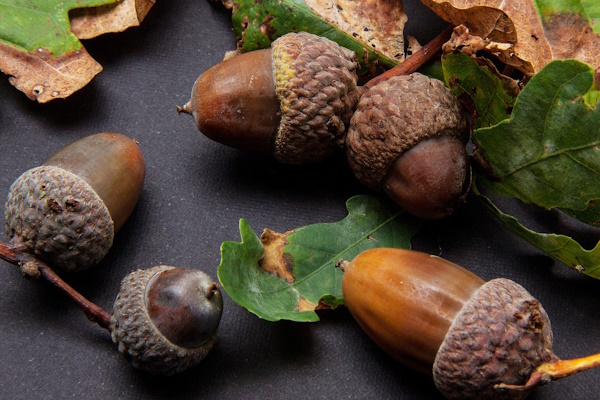by Paul Cudenec, Winter Oak
January 1, 2024
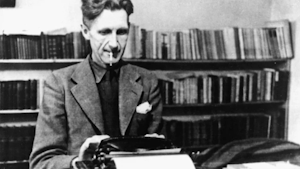 Forty years have now passed since the year in which George Orwell situated his imaginary dystopian society.
Forty years have now passed since the year in which George Orwell situated his imaginary dystopian society.
The novel Nineteen Eighty-Four was never meant to be a literal prophecy, of course, but, for the first three-and-a-half decades after its publication in 1949, it held a powerful hold on the public imagination, at least in Britain.
When I was growing up in the 1970s, the four figures “1984” were a terrifying byword for the totalitarian future that we all somehow knew was just round the corner, if we didn’t remain vigilant.
I think that Orwell’s book, along with Aldous Huxley’s 1931 novel Brave New World, helped stave off the advent of the kind of world they were both warning us against, by making it abundantly clear that nobody, regardless of political affiliation, welcomed such a future.
The date lost much of its power, of course, when the year came and went. Suddenly 1984 was just part of everyday life – it was the year that your girlfriend left you, that you passed your driving test or that Everton beat Watford in the FA Cup Final.
And although many of us still remained concerned about the prospect of a Big Brother state strengthening its grip, there was no longer the sense of counting grimly down to that fateful year – instead people started looking forward to the bright new future heralded by The Year Two Thousand.
Now, however, the date 1984 has passed back into a semi-abstract condition, especially for all those born after that date, and the title of the book seems much less important than the content, which is all too relevant today.
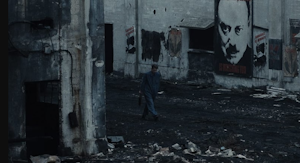
Some of the outer form of the story is admittedly now rather dated. Re-reading it for the purposes of this article, I was struck by the way in which Orwell is very much describing a bomb-damaged post-war London that had already disappeared by the time I was born and which he imagines being inhabited by a white working class (the “proles”) that has now been largely displaced.
The idea that “one literally never saw” foreigners walking the streets of London [1] would already have sounded a little strange in real-life 1984, let alone today!
I also noticed a bit of a plausibility flaw in the plot, in that Winston Smith, having taken such painstaking care never to be seen talking to his lover Julia in public, merrily brings her with him to meet O’Brien, whom he merely hopes is on his side.
He then blurts out, within seconds of arriving at the official’s home: “We are enemies of the Party”! [2] and goes on to agree to “corrupt the minds of children”, “disseminate venereal diseases” and “throw sulphuric acid in a child’s face” [3] if asked to do so by the underground resistance known as the Brotherhood.
Would anyone really do that?
But these are small quibbles in comparison with the uncanny way in which Orwell foresaw so much of the psychological control and manipulation we are enduring today.
For instance, we can immediately recognise, in the pages of the novel, those who are currently imposing the Great Reset and its United Nations Sustainable Development Goals.
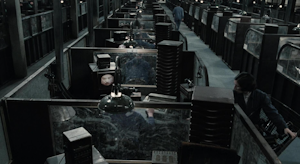
“What kind of people would control this world had been equally obvious. The new aristocracy was made up for the most part of bureaucrats, scientists, technicians, trade-union organisers, publicity experts, sociologists, teachers, journalists, and professional politicians.
“These people, whose origins lay in the salaried middle class and the upper grades of the working class, had been shaped and brought together by the barren world of monopoly industry and centralized government”. [4]
Likewise with the extent to which their control is exerted: “Even the Catholic Church of the Middle Ages was tolerant by modern standards. Part of the reason for this was that in the past no government had the power to keep its citizens under constant surveillance…
“With the development of television, and the technological advance which made it possible to receive and transmit simultaneously on the same instrument, private life came to an end.
“Every citizen, or at least every citizen important enough to be worth watching, could be kept for twenty-four hours a day under the eyes of the police and in the sound of official propaganda…
“The possibility of enforcing not only complete obedience, but complete uniformity of opinion on all subjects, now existed for the first time”. [5]
The globalist agenda of the current criminocracy is also clearly depicted: “The two aims of the Party are to conquer the whole surface of the earth and to extinguish once and for all the possibility of independent thought”. [6]
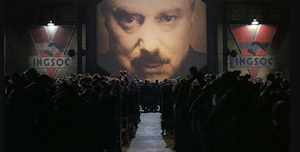
The three warring zone of Orwell’s multipolar world have ideologies that are only superficially different: “In Oceania, the prevailing philosophy is called Ingsoc, in Eurasia it is called Neo-Bolshevism, and in Eastasia it is called by a Chinese name usually translated as Death-Worship… Actually the three philosophies are barely distinguishable, and the social systems which they support are not distinguishable at all”. [7]
Orwell’s fictional tyrants even indulge in the same long-term date-related planning for their ramping up of control, declaring that by 2050: “The whole climate of thought will be different. In fact there will be no thought, as we understand it now. Orthodoxy means not thinking – not needing to think. Orthodoxy is unconsciousness”. [8]
They are out to abolish natural human life – “all children were to be begotten by artificial insemination (artsem, it was called in Newspeak) and brought up in public institutions” [9] – and are proud of the success of their social distancing project – “we have cut the links between child and parent, and between man and man, and between man and woman”. [10]
Alongside this goes the mobilising of indoctrinated youth to impose the official dogma. “It was almost normal for people over thirty to be frightened of their own children. And with good reason, for hardly a week passed in which The Times did not carry a paragraph describing how some eavesdropping little sneak – ‘child hero’ was the phrase generally used – had overheard some compromising remark and denounced its parents to the Thought Police”. [11]
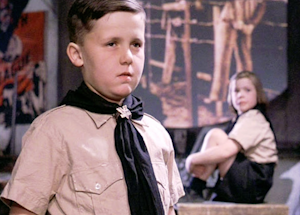
The myth of Progress plays an important part in maintaining social licence for this fictional totalitarian regime.
“Day and night the telescreens bruised your ears with statistics proving that people to-day had more food, more clothes, better houses, better recreations – that they lived longer, worked shorter hours, were bigger, healthier, stronger, happier, more intelligent, better educated, than the people of fifty years ago. Not a word of it could ever be proved or disproved”. [12]
Central to Ingsoc’s psychological control over the population is the invention and development of Newspeak, a politically-correct jargon aimed at inserting the Party’s worldview into the very terms needed to think and communicate.
To talk and write using words in their original sense was regarded as Oldspeak [13] and thus doubeplusungood [14] and might even lead to an extended stay in a joycamp. [15]
Newspeak serves an important role in the regime’s criminalisation of freedom.
Alongside the well-known Ingsoc concept of thoughtcrime there is also facecrime – “to wear an improper expression on your face (to look incredulous when a victory was announced, for example)”. [16]
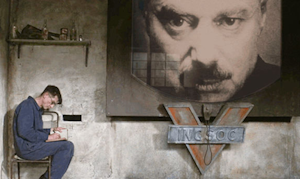
Orwell adds: “To do anything that suggested a taste for solitude, even to go for a walk by yourself, was always slightly dangerous. There was a word for it in Newspeak: ownlife, it was called, meaning individualism and eccentricity”. [17]
Alongside the mental techniques of doublethink and crimestop, which I described in a previous article, [18] we find blackwhite – “a loyal willingness to say that black is white when Party discipline demands this” and also “the ability to believe that black is white, and more, to know that black is white, and to forget that one has ever believed the contrary”. [19]
Vaccines are safe and effective. Women can have penises. Critical thinking is dangerous.
Even when old words are not actually abolished, they are stripped of their essential meaning.
Orwell explains: “The word free still existed in Newspeak, but it could only be used in such statements as ‘This dog is free from lice’ or ‘This field is free from weeds’. It could not be used in its old sense of ‘politically free’ or ‘intellectually free’, since political and intellectual freedom no longer existed even as concepts, and were therefore of necessity nameless”. [20]
This manipulation has a real impact in creating a safer and inclusive social space which is free of disinformation, hate speech or any kind of conspiracy theory or denialism: “In Newspeak the expression of unorthodox opinions, above a very low level, was well-nigh impossible”. [21]
One of the most memorable lines from the novel is the Party’s insistence that “who controls the past controls the future: who controls the present controls the past”. [22]
Any inappropriate content that has previously been published has to be sent into oblivion down the memory hole.
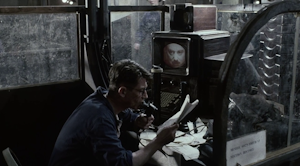
“It is intolerable to us that an erroneous thought should exist anywhere in the world”, [23] stresses Inner Party man O’Brien and we learn that no item of news or any expression of opinion which conflicts with the needs of the moment is “ever allowed to remain on record”. [24]
The result is a totally disorientated population. “Everything faded into mist. The past was erased, the erasure was forgotten, the lie became truth”. [25]
“In the end the Party would announce that two and two made five, and you would have to believe it. It was inevitable that they should make that claim sooner or later: the logic of their position demanded it. Not merely the validity of experience, but the very existence of external reality, was tacitly denied by their philosophy. The heresy of heresies was common sense”. [26]
O’Brien’s words take on a certain postmodernist tinge when he insists: “We control matter because we control the mind. Reality is inside the skull… Nothing exists except through human consciousness”. [27]
Above all, the ruling mafia want to conceal the unpalatable reality of their control. “All the beliefs, habits, tastes, emotions, mental attitudes that characterize our time are really designed to sustain the mystique of the Party and prevent the true nature of present-day society from being perceived”. [28]
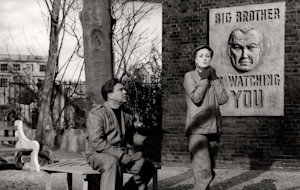
Fake opposition is another tool used by Ingsoc to trick and crush potential dissidents, in particular the cartoonish figure of arch-subversive Emmanuel Goldstein, author of a book called The Theory and Practice of Oligarchical Collectivism, [29] who has a definite whiff of Karl Marx about him.
Rather than being denied the oxygen of publicity by the regime, as one might expect, his face and words are constantly served up on the telescreens as a hated binary opposite of Ingsoc figurehead Big Brother.
“Goldstein was delivering his usual venomous attack upon the doctrines of the Party – an attack so exaggerated and perverse that a child should have been able to see through it, and yet just plausible enough to fill one with an alarmed feeling that other people, less level-headed than oneself, might be taken in by it”, [30] writes Orwell.
Although Goldstein is “advocating freedom of speech, freedom of the Press, freedom of assembly, freedom of thought”, he does so in “rapid polysyllabic speech which was a sort of parody of the habitual style of the orators of the Party, and even contained Newspeak words: more Newspeak words, indeed, than any Party member would normally use in real life”. [31]
Deliberate and malignant inversion of meaning is as much a part of Orwell’s dystopia as it is of today’s world, most famously with the Party slogan “War is peace. Freedom is slavery. Ignorance is strength”. [32]
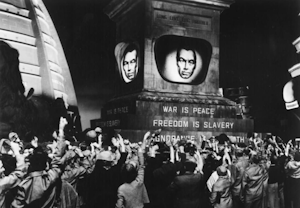
Ingsoc and the other similar global ideologies are said to have grown out of philosophies to which they still pay “lip-service”, while reversing their original ideals in “the conscious aim of perpetuating unfreedom and inequality”. [33]
“The Party rejects and vilifies every principle for which the Socialist movement originally stood, and it chooses to do this in the name of Socialism”. [34]
“Even the names of the four Ministries by which we are governed exhibit a sort of impudence in their deliberate reversal of the facts. The Ministry of Peace concerns itself with war, the Ministry of Truth with lies, the Ministry of Love with torture, and the Ministry of Plenty with starvation”. [35]
Combined with this demonic inversion of value comes a malevolent obsession with power, all too familiar to us today.
O’Brien declares: “The Party seeks power entirely for its own sake. We are not interested in the good of others; we are interested solely in power… We know that no one ever seizes power with the intention of relinquishing it. Power is not a means it is an end. One does not establish a dictatorship in order to safeguard a revolution; one makes a revolution in order to establish the dictatorship. The object of persecution is persecution. The object of torture is torture. The object of power is power”. [36]
In another of the chilling phrases for which Nineteen Eighty-Four is so renowned, he adds: “If you want a picture of the future, imagine a boot stamping on a human face – for ever”. [37]
It is important to the regime that its control is so complete that it becomes impossible even to imagine that it could one day come to an end.
O’Brien tells Winston: “If you have ever cherished any dreams of violent insurrection, you must abandon them. There is no way in which the Party can be overthrown. The rule of the Party is for ever. Make that the starting-point of your thoughts”. [38]
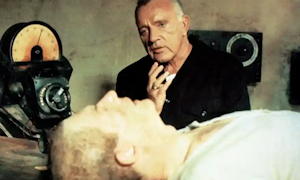
The sense of powerlessness imposed by the Party seems to work on Winston, at least with regard to the prospects of his personal micro-rebellion, and he considers it “a law of nature that the individual is always defeated”. [39]
The fact that he ends up betraying his principles under torture in Room 101, denouncing his Julia and conceding that he loves Big Brother, can leave the reader with a heavy and disempowering feeling of defeat and I have long considered this to be a flaw in the book.
But a closer look reveals that there is something else going on there as well, a deep counter-current of hope flowing against the tide of totalitarian repression.
Some of that hope is seen by Winston in the 85% of the population known as the “proles”, even though their gullibility and lack of imagination frustrate him: “They needed only to rise up and shake themselves like a horse shaking off flies. If they chose they could blow the Party to pieces to-morrow morning. Surely sooner or later it must occur to them to do it? And yet – -!” [40]
He also finds encouragement in the ability of someone such as Julia to see through the lies peddled by the regime, despite the towering wall of deceit it has constructed around its activities.
She startles Winston “by saying casually that in her opinion the war was not happening. The rocket bombs which fell daily on London were probably fired by the Government of Oceania itself, ‘just to keep people frightened’.” [41]
The human capacity to see the truth and to remain faithful to it in the most difficult of situations is key to Orwell’s despite-it-all variety of hope.
“Being in a minority, even a minority of one, did not make you mad. There was truth and there was untruth, and if you clung to the truth even against the whole world, you were not mad”. [42]
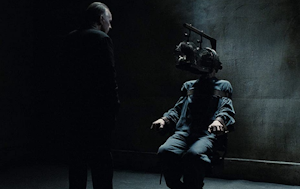
He also describes an innate feeling of right and wrong which enables us to sense that there is something deeply awry with the society in which we are living.
Winston, reflecting on his own unease, muses: “Was it not a sign that this was not the natural order of things… Why should one feel it to be intolerable unless one had some kind of ancestral memory that things had once been different?” [43]
It is this source of hope beyond the fallible and mortal individual to which Smith tries to cling during his interrogation.
He tells O’Brien: “Somehow you will fail. Something will defeat you. Life will defeat you… I know that you will fail. There is something in the universe – I don’t know, some spirit, some principle – that you will never overcome”. [44]
Orwell, his health fading as he wrote the novel, could project no prospect of immediate change on to his fictional society.
However, he has Winston say to Julia: “I don’t imagine that we can alter anything in our lifetime. But one can imagine little knots of resistance springing up here and there – small groups of people banding themselves together, and gradually growing, and even leaving a few records behind, so that the next generation can carry on where we leave off”. [45]
These are not the words of a man who has surrendered to despair.
But the most important element in this concealed counter-current of Orwellian optimism is something I only noticed in my most recent re-reading.
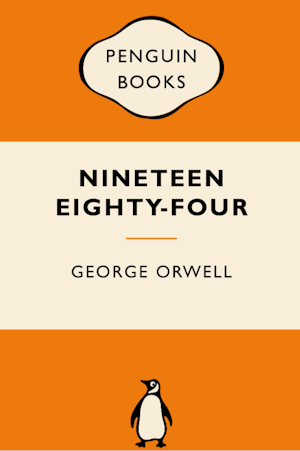
The appendix, ‘The Principles of Newspeak’, looks back on the Ingsoc period in the past tense, from the vantage point of a more distant future in which the Big Brother nightmare has evidently come to an end and in which some kind of freedom and common sense have been restored.
It remarks, for instance: “Only a person thoroughly grounded in Ingsoc could appreciate the full force of the word bellyfeel, which implied a blind, enthusiastic acceptance difficult to imagine to-day”. [46]
So over the horizon there is a “to-day” in which the “blind, enthusiastic acceptance” of totalitarianism is not only a thing of the past, but even “difficult to imagine”.
Confirming the point, the unknown writer of this pseudo-historical account notes that “the final adoption of Newspeak had been fixed for so late a date as 2050”. [47]
These are the very last words on the last page of the book and Orwell is telling us here, right at the end of his account, that the Ingsoc regime fell before it was able to achieve its long-term agenda of completely erasing human freedom!
The Party could be overturned! The boot didn’t stamp on a human face for ever!
And how was this possible, in the face of the overwhelming full-spectrum control of people’s lives and minds that Orwell describes to such terrifying effect?
It can only have been by people refusing to let go of the truth and having faith in the spirit of the universe that will eventually prevent death from prevailing over life, slavery over freedom, or power over humanity.
Orwell must have written Nineteen Eighty-Four out of desperate, inspired, need to play his part in the struggle against the forces of darkness which lay ahead.
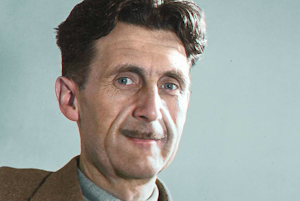
He did what he could and, as I said, for many years his warning helped hold back the advance of tyranny.
Now it’s up to us to take the baton of deep defiance that he is holding out to us, across the decades.
It’s up to us to draw inspiration from our ancestral memory of natural order, to see through the system’s lies, to band together in small groups and form knots of resistance that will keep the tattered flag of freedom flying proudly in the years to come.
We have to do so without any hope that victory will necessarily be achieved in our lifetimes, but must simply aim to do all that is needed in order that, in Orwell’s words, “the next generation can carry on where we leave off”.
On the other hand, who knows?
Maybe the fall of the system is coming sooner than we might think.
Orwell has Winston remark that “the only victory lay in the far future”. [48]
But then he wrote that 75 years ago.
Perhaps that far future is now!
[Audio version]
Connect with Paul Cudenec Substack | Website
[1] George Orwell, Nineteen Eighty-Four (Harmondsworth: Penguin, 1958), p. 96.
All subsequent page references are to this work.
[2] p. 138.
[3] p. 140.
[4] pp. 164-65.
[5] p. 165.
[6] p. 156.
[7] pp. 158-59.
[8] p. 46.
[9] p. 56.
[10] p. 214.
[11] p. 23.
[12] p. 63.
[13] p. 32.
[14] p. 39.
[15] p. 247.
[16] p. 53.
[17] p. 69.
[18] ‘Marxist doublethink and the disabling of resistance’.
https://winteroak.org.uk/2023/12/19/marxist-doublethink-and-the-disabling-of-resistance/
[19] pp. 169-70.
[20] pp. 241-42.
[21] p. 249.
[22] p. 199.
[23] p. 205.
[24] p. 35.
[25] p. 63.
[26] pp. 67-68.
[27] pp. 212-13.
[28] p. 168.
[29] p. 150.
[30] pp. 13-14.
[31] p. 14.
[32] p. 25.
[33] p. 163.
[34] p. 172.
[35] p. 172.
[36] pp. 211-12.
[37] p. 215.
[38] p. 210.
[39] p. 111.
[40] p. 59.
[41] p. 125.
[42] p. 173.
[43] p. 51.
[44] pp. 216-17.
[45] p. 127.
[46] p. 245.
[47] p. 251.
[48] p. 111.
Cover image credit: BiancaVanDijk
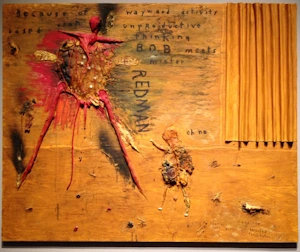 In a previous phase of my existence I used to pen regular film reviews for the local paper at which I worked.
In a previous phase of my existence I used to pen regular film reviews for the local paper at which I worked.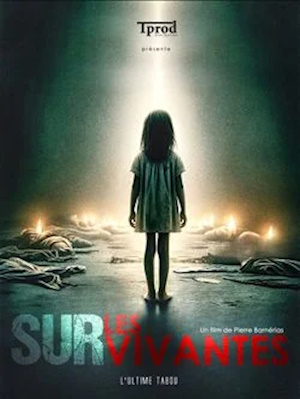 The subject of the film is the abuse of children: not just sexual abuse, including violent rape, but also the torture of children, the dismembering and murdering of children and the forcing of children to watch and participate in the abuse, torture, dismembering and murdering of other children.
The subject of the film is the abuse of children: not just sexual abuse, including violent rape, but also the torture of children, the dismembering and murdering of children and the forcing of children to watch and participate in the abuse, torture, dismembering and murdering of other children.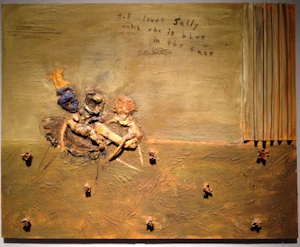 In the subsequent weeks, the shock of what was described in the film has percolated into my thinking.
In the subsequent weeks, the shock of what was described in the film has percolated into my thinking.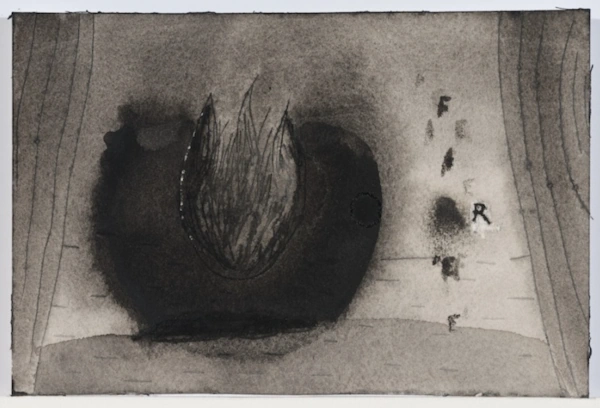
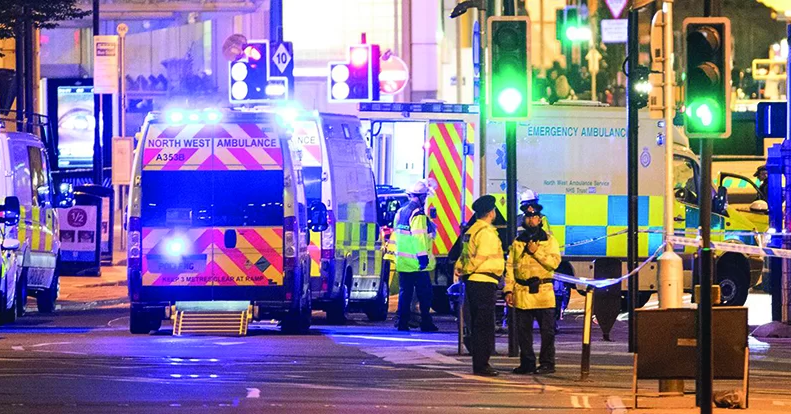
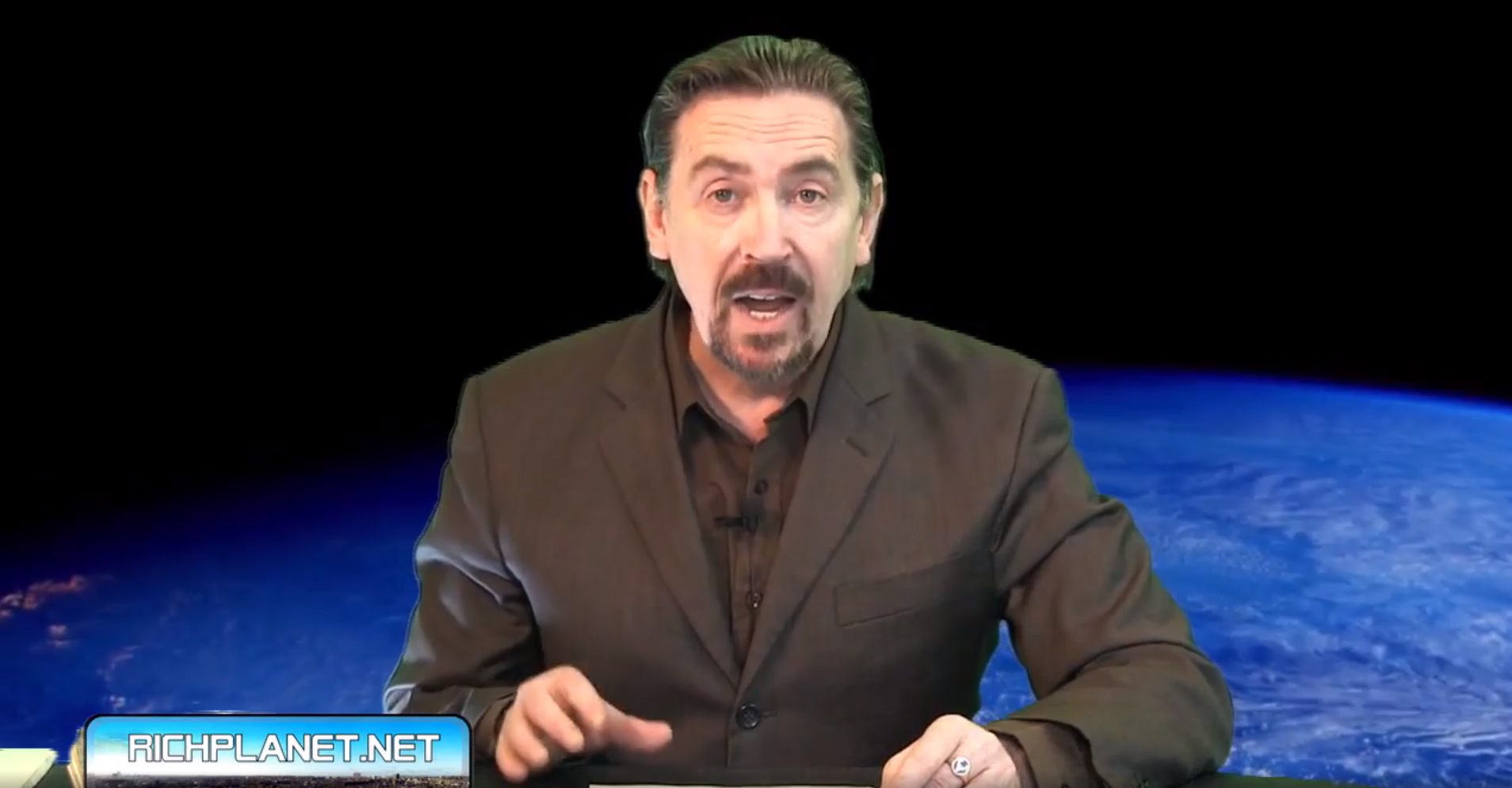

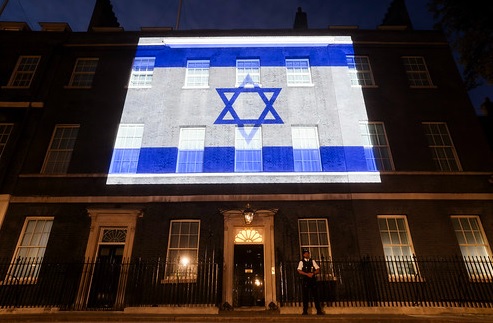



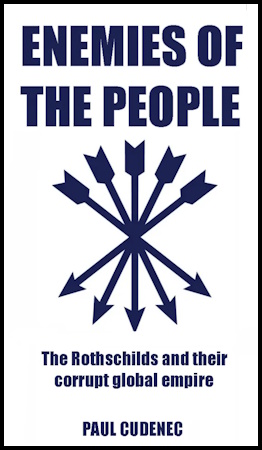

 Forty years have now passed since the year in which George Orwell situated his imaginary dystopian society.
Forty years have now passed since the year in which George Orwell situated his imaginary dystopian society.











